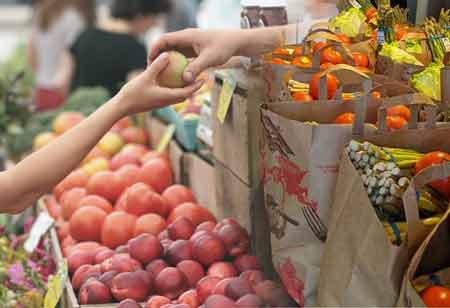

Thank you for Subscribing to Food Business Review Weekly Brief

Food hubs are vital in enhancing local products' market presence, optimizing supply chains, ensuring quality, and promoting sustainability amid rising demand.
In sustainable and locally sourced food, the emergence of food hubs has become a pivotal force, transforming how local products reach consumers. These hubs are pivotal in bridging the gap between producers and consumers, facilitating the efficient distribution of locally grown or produced foods. Food hubs foster a resilient and interconnected local food system. The primary advantage they bring is streamlining the supply chain. By consolidating products from multiple local producers, food hubs achieve economies of scale in transportation, storage, and distribution. This reduces operational costs for producers and makes local food more competitive in the broader market. Food hubs serve as a central hub where producers consolidate products, offering a convenient one-stop solution for buyers. This centralized approach simplifies the procurement process, making it more efficient for buyers to access diverse local products. In addition to logistical efficiencies, food hubs contribute significantly to quality control and standardization. They establish and enforce quality standards by serving as intermediaries, ensuring that the finest local products reach the market. This safeguards the reputation of local producers and instills confidence in consumers regarding the quality and consistency of the products they purchase. The Benefits of Food Hubs for Local Food Producers Increased Access to Markets The agricultural sector has transformed from large-scale, single-crop farms to smaller, diversified farms typically managed by one to three individuals. A persistent farm labor shortage has prompted the need for more efficient marketing strategies. The emergence of food hubs as sales outlets, facilitating the bulk sale of products, has proven beneficial for farmers. This approach minimizes the time farmers spend on marketing and expands their reach to previously untapped markets. Streamlined Processes When farmers establish a connection with a food hub, incorporating a daily, weekly, or monthly delivery system becomes an integral component of their daily routine. This simplifies the coordination of sales, delivery, and bookkeeping procedures, ultimately allowing them more time to dedicate to farming activities. Increased Sustainability Food hubs boast a broader outreach platform, enabling farmers to connect with a larger audience of individuals and organizations seeking to purchase food. This alleviates farmers of some outreach responsibilities, allowing them to concentrate on their primary expertise. Increased Community Engagement Food hubs, commonly focused on local cuisine and fostering a sense of community, incorporate elements of communal bonding, promoting well-being through healthy activities and celebrating diverse cultures. These hubs serve as inclusive spaces that unite individuals from varied socioeconomic backgrounds, cultural identities, and genders, emphasizing a broader purpose beyond merely culinary aspects. Increased Access to Resources and Services Engaging with food hubs introduces farmers to initiatives and local gleaners, potentially inspiring them to initiate similar programs at farmers’ markets. These collaborations enable farmers to access various local, state, and federal grants, which food hubs actively promote within the local community. Food hubs emerge as integral components in the journey of local foods from farms to markets. They play a vital role in improving the market presence of local products by optimizing supply chains, ensuring quality, and promoting sustainability. With the increasing demand for locally sourced and sustainable foods, food hubs are positioned to have a greater impact on shaping food systems.